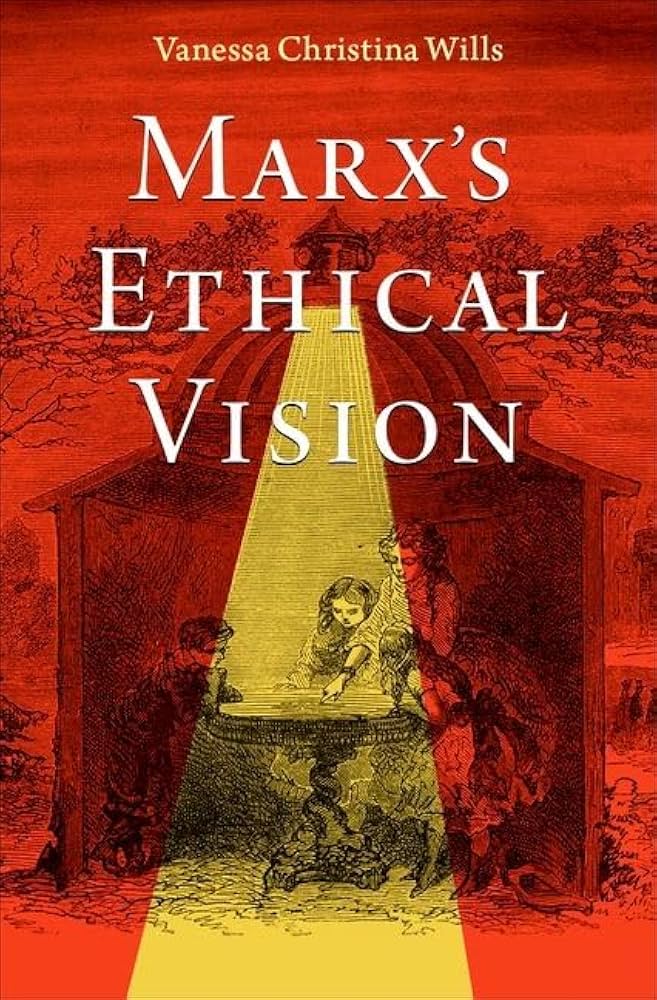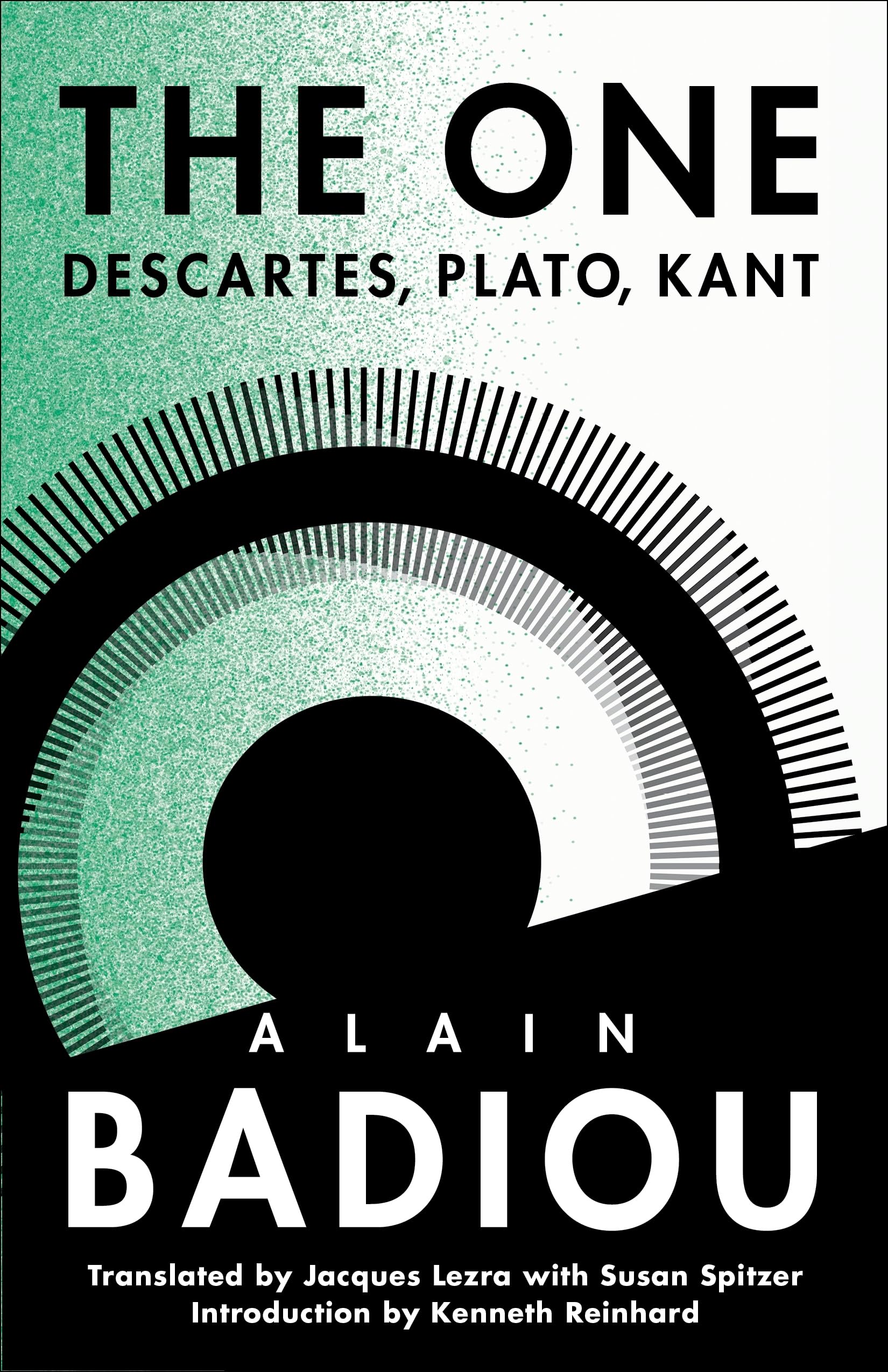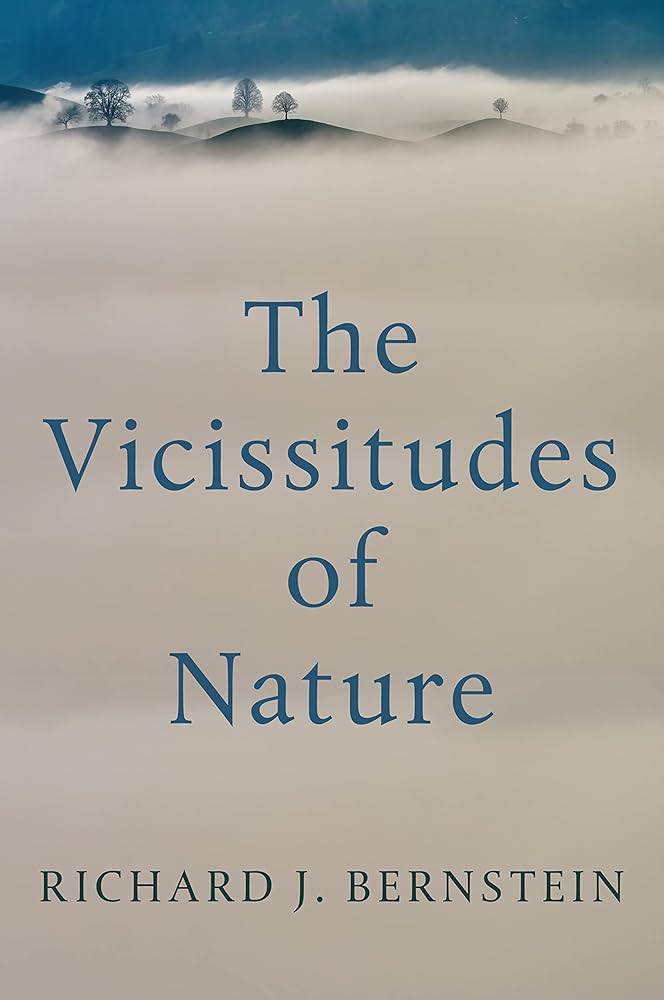Marx’s Ethical Vision by Vanessa Christina Wills
Vanessa Christina Wills' Marx’s Ethical Vision argues that Marx’s work reflects a coherent ethical perspective rooted in human flourishing and dialectical freedom. Rejecting claims of a moral break in Marx’s thought, Wills critiques rival theories and highlights the relevance of Marxist ethics in addressing capitalism's injustices today.
There is much to say on behalf of Vanessa Christina Wills’ Marx’s Ethical Vision, which not only advances Marxist scholarship but takes a strong, well-founded position regarding some of the most vexing and significant questions confronting anyone who would grasp his philosophical thought. The question concerning Marx’s relationship to ethics – including but not limited to moral theory – is hardly anything new. It has been a persistent and recurring issue among Marx’s interpreters, one which came to the fore with the 1932 publication of the Economic and Philosophic Manuscripts of 1844, and its analysis of the worker’s alienation under conditions of capitalism.
The fundamental reason Marx and ethics has presented a philosophical conundrum is that, on the one hand, there are many occasions where Marx underscores capitalism’s immiseration of so many lives, and in starkly normative terms implying moral condemnation. As Wills observes: ‘“Vampire,” “serpent,” “barbarous” – these are only a few of the unflattering descriptions Marx applies to capital and, notably these all occur in later writings, supposed by many of his interpreters to be his most thoroughly amoral.’ (2) On the other hand, we are told, for example, in The German Ideology, that ‘the Communists do not preach morality at all.’ (Marx and Engels 1970: 247); and in chapter nine, Wills offers an interpretation and defense of Marx’s famous ‘call for the abolition of morality altogether.’ (2)
In elaborating a Marxist ethics, Wills invariably engages one of the ongoing debates among Marx’s interpreters: whether there was a major epistemic break between the so-called early Marx of the 1844 Manuscripts and the mature Marx of Das Kapital and ‘scientific socialism.’ The view that there are, in effect, ‘two Marxes’ was championed most notably by Althusser and has come to be associated with him more so than any other Marxist thinker. It was argued that the more scientific his work became, the less use Marx had for moral theory and reasoning. Wills rejects Althusser’s claim that there was a radical break in Marx’s thinking, a break between an early romantic humanist, on the one hand, and a later, amoral scientific socialist on the other. Although the later Marx may not use the word ‘alienation,’ the idea is unquestionably present in his mature writings. Wills quotes this passage from Capital to underscore the point: ‘The labourer […] constantly produces material, objective wealth, but in the form of capital, of an alien power that dominates and exploits him; and the capitalist as constantly produces labour-power, but in the form of subjective wealth, separated from the objects in and by which it can alone be realised; in short he produces the labourer, but as a wage labourer.” (Marx 2019: 570)
Wills also rejects the claim (associated with G. A. Cohen and Allen Wood) that Marx may well have embraced moral principles throughout his life, but that these could not be theoretically reconciled with his historical materialism and economic determinism. Analytical Marxism, which has few if any proponents today, is rejected first and foremost because its basic premise that there is no distinctive or valuable method to be found in Marx’s work is misguided at best. Analytic philosophy was born out of its repudiation of British Idealism, with its roots in Hegel, and driven by hostility to Hegelian dialectics generally. With respect to our understanding and appreciation of Marx this is unfortunate, because dialectic is an integral part of his thinking. Marx’s dialectical method is indispensable once we acknowledge that ‘the world is knowable in and through contradictory aspects of existence […] dialectics regards contradiction as a real, ontological, and objective feature of the complex, dynamic, internally conflictual, and ambiguous world, itself.’ (7)
Which brings us to Wills’ fundamental contention, that while Marx never wrote an ethical treatise, a creative and critical reconstruction of his approach to ethics is both possible and necessary. For Marx, normative, ethical claims do not constitute a body of abstract, ahistorical and eternal truths, but ‘historically emergent products of human social existence.’ (9) However, a close reading of Marx reveals ‘a single, coherent ethical perspective that evolves and deepens over the course of his intellectual life.’ (2) Wills emphasizes Marx’s Aristotelianism, ‘the development of rich individuality,’ the creation of ‘those conditions conducive to the in principle limitless proliferation of human talents, capacities and diverse forms of life.’ (3) She also underscores the ‘keen interest Marx took early on in a study of Aristotle’s De Anima’ (231) – the upshot of which was Marx’s ‘conception of revolutionary activity as a practice that transforms and refines the human activity of perception (aesthésis) allowing the normative dimensions of human social life to be apprehended more immediately and, as a result, responded to both more spontaneously and more appropriately.’ (233)
Wills acknowledges that morality is, according to Marx, a species of ideology; however, it is her intention in chapter two, ‘Ideology Critique and the Critique of Morality,’ to show that ideology should not be regarded as a wholly pejorative term; that while moral commands may indeed be viewed as a form of ideology, Marx did not intend to ‘reject all moral reasoning out of hand.’ (16) In short, ideology is not ‘inherently and uniformly reactionary’ but has a ‘potentially revolutionary character’ (18) Wills has no illusions that a proletarian revolution cannot succeed merely by appeal to the power of moral argumentation – but that is not to say it cannot assist the bourgeoisie especially ‘in seeing the need to switch their allegiances to the working class.’ (18) The chapter contains a critical examination of various theories of ideology, including Althusser’s notion of ideology as thought emptied out of history, ‘that [ideology] has no history of it own’ – an odd claim which is something of a distortion of Marx who, as Wills points out, ‘never says that ideology has no history.’ In fact, Althusser ‘mischaracterizes Marx’s historical materialist critique of ideology by insisting that for Marx, ideology is best understood as “imaginary,” giving us no insight at all into the objective relations of production in a given society.’ (29)
One of the most welcome features of her book is Wills’ examination of writings by Marx which have received relatively little attention – for example, his doctoral dissertation on the difference between the philosophies of Epicurus and Democritus. Her reading of the dissertation is meant to advance the broader claim that Marx should not be regarded as purely deterministic – he does not subscribe, in other words, to what William James would call the ‘iron block’ universe, where everything is predetermined without exception or qualification. Marx’s defense of Epicurus’ claim that sometime atoms ‘swerve’ from their original path is an indication of his commitment to a materialism that ‘can accommodate freedom, conscious activity, and intervention in the material world.’ (104) Wills coins the term ‘dialectical compatibilism’ to describe Marx’s position on freedom and necessity. Freedom and determinism are ‘two mutually conditioning aspects of a single, historically developing unity.’ (14) The compatibility of freedom and determinism is not a static reality that remains unchanging for human beings across time – or as Wills puts it: ‘One cannot issue timeless, universal statements about the degree to which external determining factors influence human behavior […] deterministic economic forces also function as preconditions for human freedom and figure into the story of how that freedom comes about.’ (97)
Chapter eight, concerned with Marx’s critique of rival moral theories, is especially notable for Wills’ extended analysis of the relationship between Marx and Kantian ethics. As Wills points out, there have been notable attempts to bring Marx and Kantianism into closer proximity. Kant’s formulation of the categorical imperative never to treat another rational being merely as a means but always also as an end in themselves, undoubtedly resonates with Marx’s condemnation of capitalism’s mutilation and denigration of the worker, their transformation into a mere appendage within the means of production. Still, according to Marx, Kant’s ethics must ultimately come up short ‘as a guide for social transformation’, not least of all because of ‘Kantianism’s focus on the autonomous “free will” and on that will’s conformity with the Moral Law as the central question of morality’ – and secondly, because such focus on the spontaneity of the will does not adequately acknowledge ‘the extent to which the will is itself determined by material conditions and material interests.’ (184) Kantianism allows itself to be ‘too easily reconciled to powerlessness over reality, making morality out as purely a question of the “good will,” which is good without reference to effects.’ (189) Such criticism is not without foundation. As Kant himself would state in the Groundwork of the Metaphysics of Morals: ‘Even if, by a special disfavor of fortune […] this [good] will should wholly lack the capacity to carry out its purpose […] then like a jewel it would still shine by itself, as something that has its full worth within itself.’ (Kant 2012: 394)
There is another fundamental difference between Marxist and Kantian ethics, which brings us to one of the most significant theses of the book – namely, that regarding the eventual abolition of morality. From a Kantian standpoint there can be no justification for the claim that morality will somehow be surpassed or come to an end. Kant claims that the immortality of the soul is a postulate of pure practical reason precisely because the complete conformity of our dispositions with the moral law ‘is a perfection of which no rational being of the sensible world is capable at any moment of his existence […] it can only be found in an endless progress toward that complete conformity.’ (Kant 2015: 122) So although we can have no theoretical knowledge pertaining to immortality, it is something that morality itself requires us to think.
What is meant by the ‘abolition of morality’ is ambiguous. In the Communist Manifesto, we are told that morality will ‘vanish’ with the ‘total disappearance of class antagonisms.’ (Marx and Engels 1948: 504) But this could be understood in a weak sense or a strong sense. Marx could simply mean that with communism there will no longer be any need to preach morality: when we have done away with the exploitation and degradation of human beings, it will ‘effect an alteration so profound that it will make prosocial forms of human interaction habitual, customary, and natural.’ (238) But then would it not make as much if not more sense to speak of the realization or fulfillment of morality rather than its elimination? If, on the other hand, we adopt a stronger interpretation according to which ‘a fully developed communist society would be without moral reasoning, as such’ (213), then the claim strikes me as highly contestable. Even in a communist society where moral injunctions have become unnecessary, its members will still find themselves in situations where something like moral reasoning is necessary. With the advance of new technologies moral problems and dilemmas will continue to arise which at this point we can barely even foresee. Communism, for Marx, represents the true beginning of human history, and it seems odd to suggest that human history proper will commence with the abolition of moral reasoning rather than its development.
It is to Wills’ credit that Marx’s Ethical Vision is a book that, because of its extensive engagement with the secondary literature, will appeal to specialists. At the same time, it is written in a highly accessible manner and covers sufficient familiar territory that it will also be a good book for those that are relatively new to Marx’s thought. Most importantly, Wills offers a strong reading of Marxist ethics with much to recommend it over rival approaches. At the most fundamental level, her interpretation is based on a holistic understanding of Marx, one that embraces his dialectical method and sees his engagement with ethics in constructive terms that we are arguably in great need of today. We are living in a time of savage class warfare – no less than when Marx was writing – with child labor rising, economic inequality skyrocketing, right-wing extremism becoming mainstream, and environmental devastation on a global scale. It is more important than ever to see capitalism for the moral bankruptcy it represents, for its injustice and inhumanity. To that end, Marx’s Ethical Vision makes a notable contribution.
References
Immanuel Kant 2012 Groundwork of the Metaphysics of Morals (Cambridge: Cambridge University Press).Immanuel Kant 2015 Critique of Practical Reason (Cambridge: Cambridge University Press).Karl Marx 2019 Capital Volume One: A Critique of Political Economy (Mineola, NY: Dover Publications).Karl Marx and Frederick Engels 1948 Manifesto of the Communist Party (New York: International Publishers).Karl Marx and Frederick Engels 1970 The German Ideology (London: International Publishers).
Sam Ben-Meir
Dr. Sam Ben-Meir is a philosopher and educator whose work focuses on political philosophy, ethics, and contemporary political issues, serving as an assistant adjunct professor of philosophy at the City University of New York, College of Technology.



